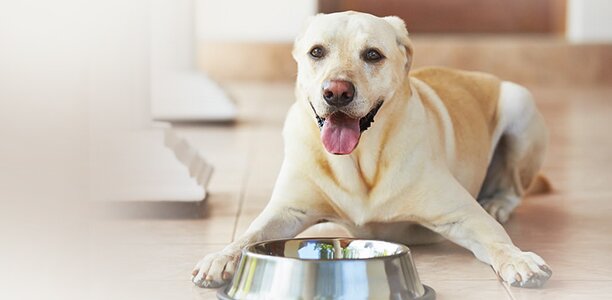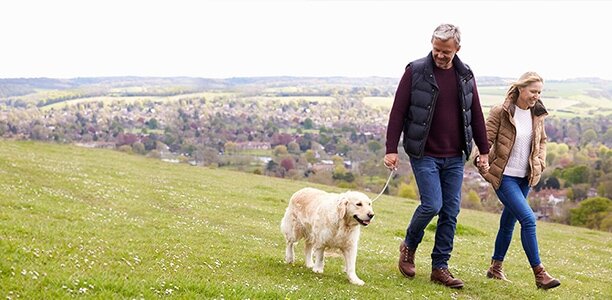Last Updated: 03/06/2025
How To Help Your Dog Lose Weight
Is your dog overweight? Get diet & exercise tips.
Author: Dr Carla Paszkowski BVSc (Hons)
Reading Time: 6 minutes - short read
Being overweight or obese can have serious health consequences for your dog including increased risk of osteoarthritis, diabetes, respiratory problems and heart failure. In addition, obese and overweight dogs are also likely to have a reduced lifespan compared with their lean counterparts. If you suspect that your dog may be overweight, it is best to consult your veterinarian for further advice. Your vet will be able to help you to determine your dog's ideal weight and discuss a suitable plan of action.
In this article
Getting the Diet Right

Feeding your dog an appropriate weight loss diet is one of the most crucial components of their weight loss program. There are a huge range of high quality weight management diets now available for dogs, your veterinarian will be able to help you choose the right one to suit your dog's needs. Weight loss diets are generally lower in calories to promote fat loss, with higher levels of protein, fibre and other ingredients to help prevent your dog from feeling hungry between meals. In some cases, your veterinarian may also recommend a prescription veterinary diet to help fast track your pooch's weight loss program. These diets are scientifically proven to support weight loss and contain unique extra ingredients to deliver timely and reliable results.
Whatever diet you settle on for your dog, it's important to remember that it won't work unless you feed the right amount. Be sure to follow the feeding guidelines provided by your vet to ensure that you are not overfeeding your dog. You may find it helpful to mark the cup or scoop at the appropriate level so that it is easy to measure out the right amount every time. If you are noticing that your dog is hungry or begging for food between meals, it can help to split his daily feeding amount into two or three smaller meals and slow down his rate eating using an anti-gulp bowl or kibble dispensing toy.
Treat Wisely
Although it can be tempting to give into those pleading puppy dog eyes, giving your dog treats in addition to his daily meals can undo all of your hard work. As an alternative to standard treats or human food which can be high in calories, try keeping aside a little of his kibble each day to use as a treat allowance, or talk to your vet about including a small amount of 'light' treats in your dog's weight loss program. Remember that you will need to decrease the amount of wet or dry food you are feeding to compensate for any treats that you give, which could leave your pooch feeling hungry!
Exercise

Getting active with your dog won't just benefit his waistline, it can be good for you too! Try to incorporate daily exercise into your dog's routine. Walking and swimming are great options for older dogs and those with sensitive joints, while more vigorous activity like running and playing fetch are good options for more active, fitter dogs. Remember to build your dog up to any new exercise slowly to prevent potential injuries.
Stay Committed
It's important to realise that like all good things, weight loss takes time. For your dog's weight loss program to be a success it's important to have regular weigh-ins every 2 to 4 weeks with your vet to check his progress. Try and get everyone in the household on board, a weight loss chart displayed in a prominent location like the fridge can help to remind the whole family to stay committed and think twice about sneaking your pooch an extra treat.
History
Our experts continually monitor the health and wellness space and we update our articles when new information becomes available.
Tue Feb 11 2025
Edited by Dr Teagan Lever BVSc (Hons)Dr Carla Paszkowski BVSc (Hons)
Veterinarian
Dr. Carla graduated from the University of Queensland in 2013 with a Bachelor of Veterinary Science and worked for a number of years in small animal clinics across South East Queensland. While Carla enjoys most facets of clinical veterinary work, she holds a special passion for feline medicine, pocket pets, and nutrition.

